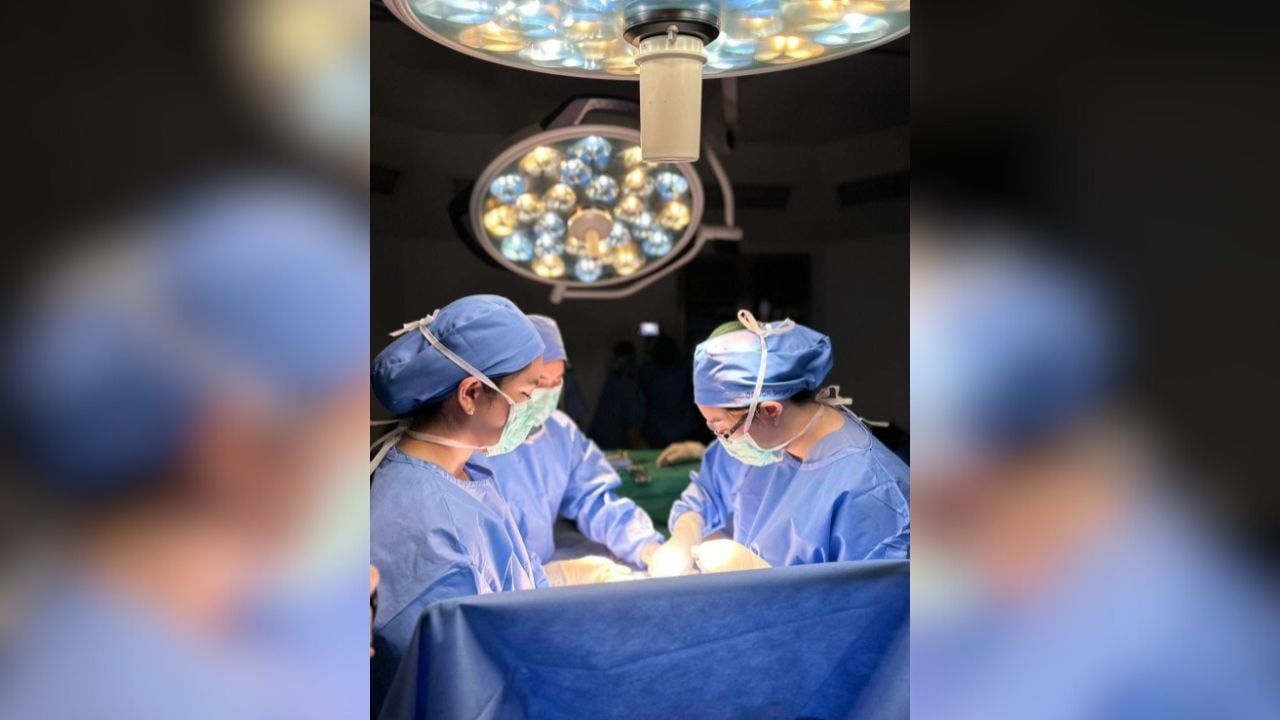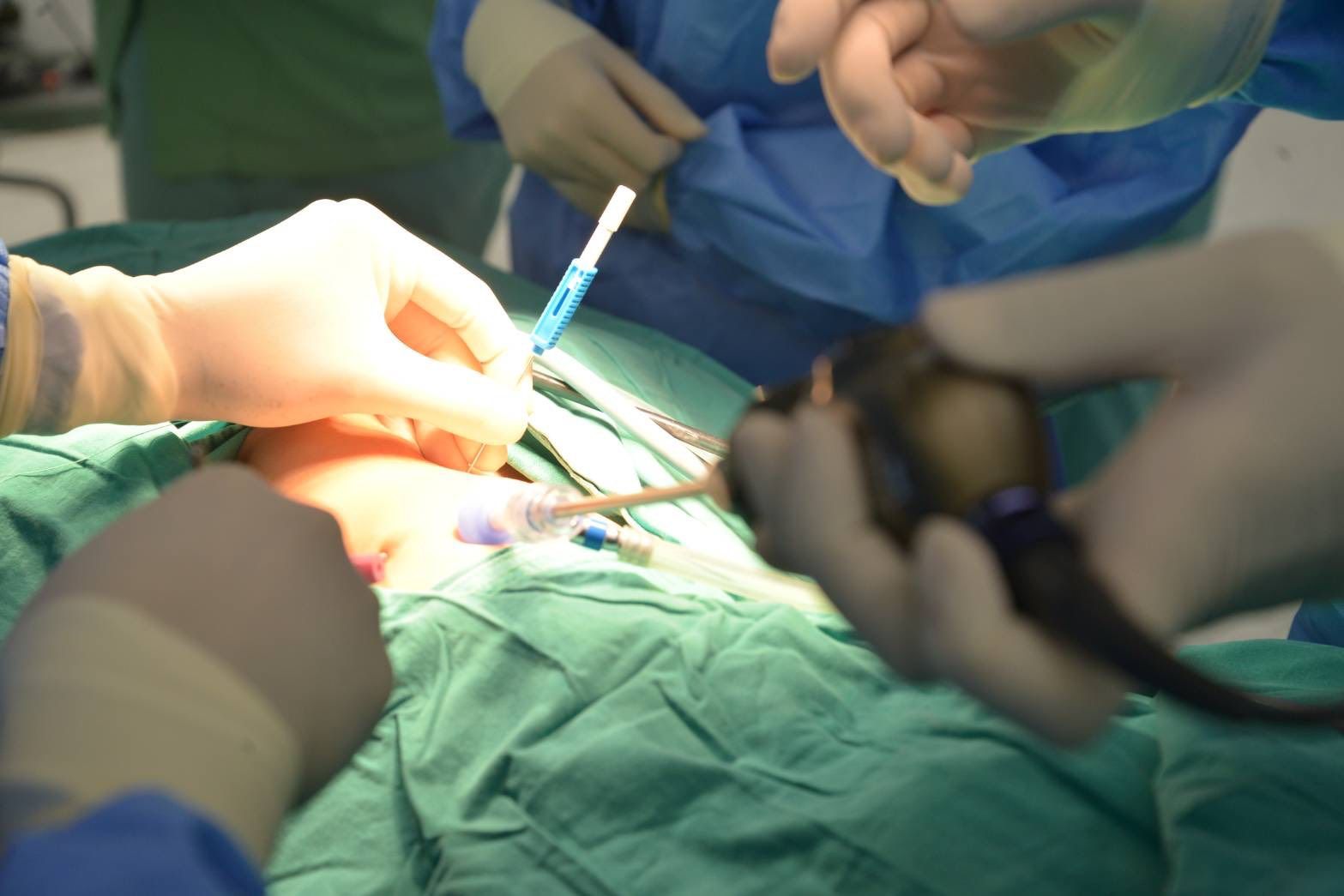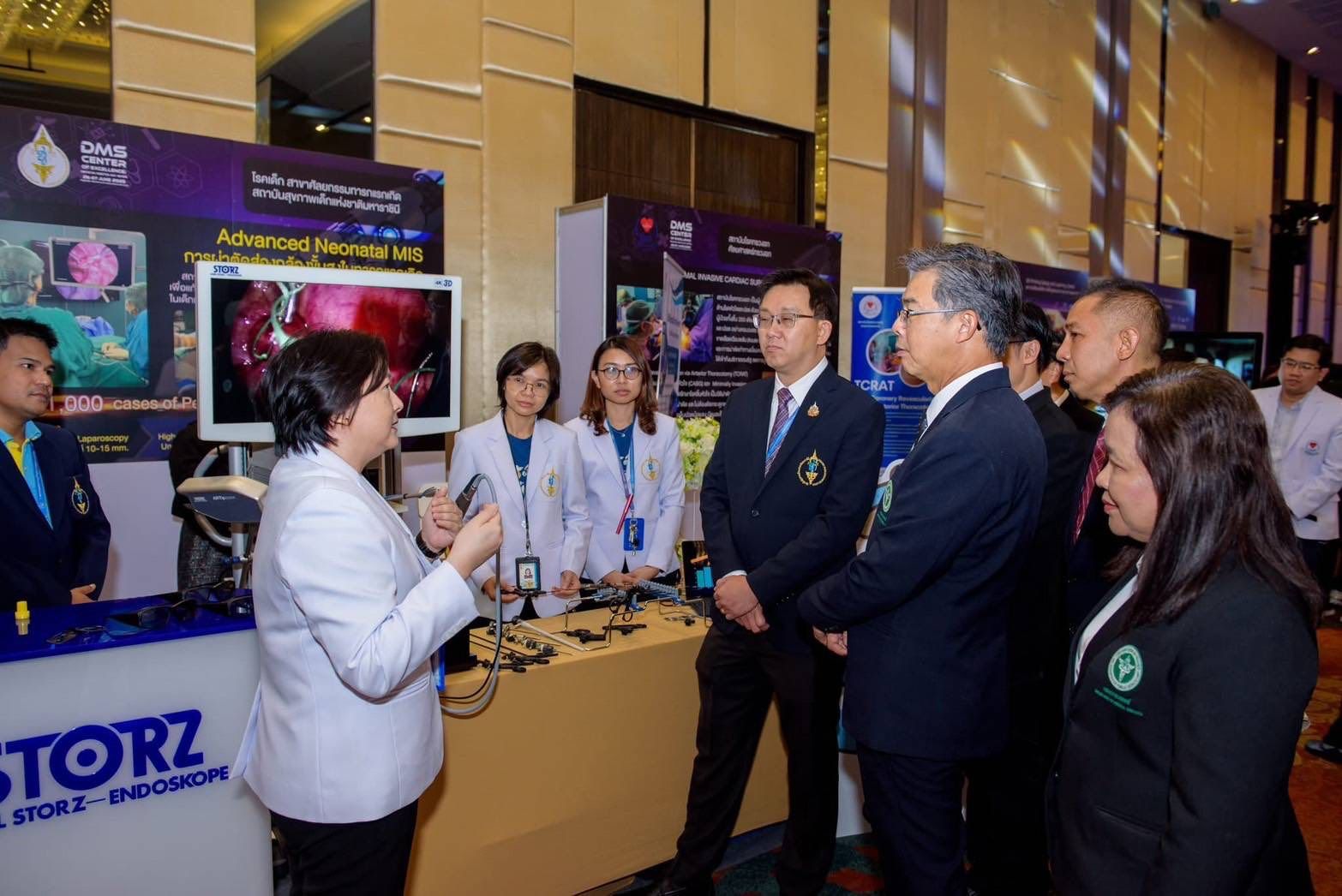Bangkok doctors perform scar-free baby ops
Minimally invasive operations now possible in Thai newborns thanks to cutting-edge surgical innovations

Thai doctors are now performing life-saving surgery on newborns using tools smaller than a pencil tip—without leaving a scar.
The Queen Sirikit National Institute of Child Health has become the first medical centre in Thailand to perform advanced minimally invasive surgery on newborns, according to the Department of Medical Services (DoMS).
DoMS Deputy Director-General Thanin Wechapinan announced the breakthrough this week, praising the institute’s adoption of cutting-edge techniques that prioritise safety, speed, and surgical precision.
“The technology significantly boosts clinical outcomes and improves training for paediatric surgeons and operating room nurses across the country,” Thanin said.
The institute, which carries out around 1,500 paediatric operations annually—mostly for congenital conditions—has integrated Indocyanine Green (ICG) fluorescence imaging, a game-changer in real-time visualisation during surgery.
According to institute director Dr Arkom Chaiwerawattana, the journey began back in 1997 when the hospital introduced minimally invasive surgery for older children using 15mm tools. As the instruments evolved, so did the possibilities: in 2012, 5mm tools enabled surgery in infants, and by 2014, 3mm instruments allowed procedures in newborns.
“We were the first in Thailand to use endoscopic surgery for correcting congenital anomalies in newborns,” said Dr Arkom.

These include thoracoscopic and laparoscopic techniques for conditions like congenital diaphragmatic hernia, oesophageal atresia, duodenal atresia, anorectal malformations, and choledochal cysts.
Dr Wannisa Poocharoen, a senior paediatric surgeon at the institute, revealed that over 1,000 paediatric patients have undergone these procedures—making it the highest-volume centre of its kind in Thailand.

Now, the institute has reached another milestone: Single Incision Laparoscopic Surgery (SILS), which uses just one small entry point. When combined with ICG technology, surgeons gain clearer anatomical visualisation, enabling quicker operations with fewer complications, Bangkok Post reports.
The results are dramatic—smaller wounds, less post-op pain, faster recovery, and virtually no long-term scarring. This not only improves the lives of young patients but also reduces emotional and financial strain on families.
With more than 25 years of experience, the institute is setting the gold standard in paediatric surgery—not just in Thailand, but across Southeast Asia.
Latest Thailand News
Follow The Thaiger on Google News:


























